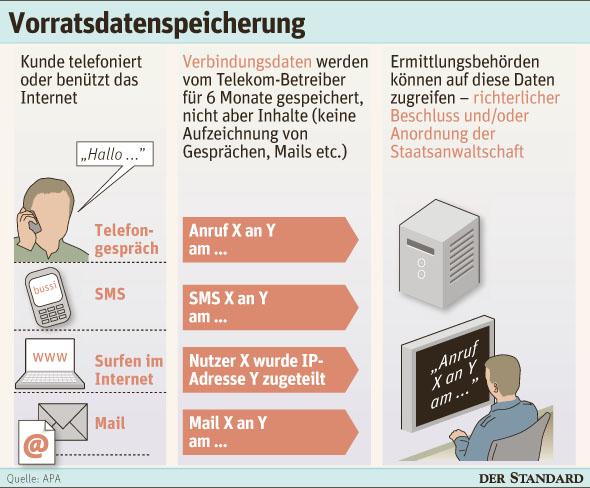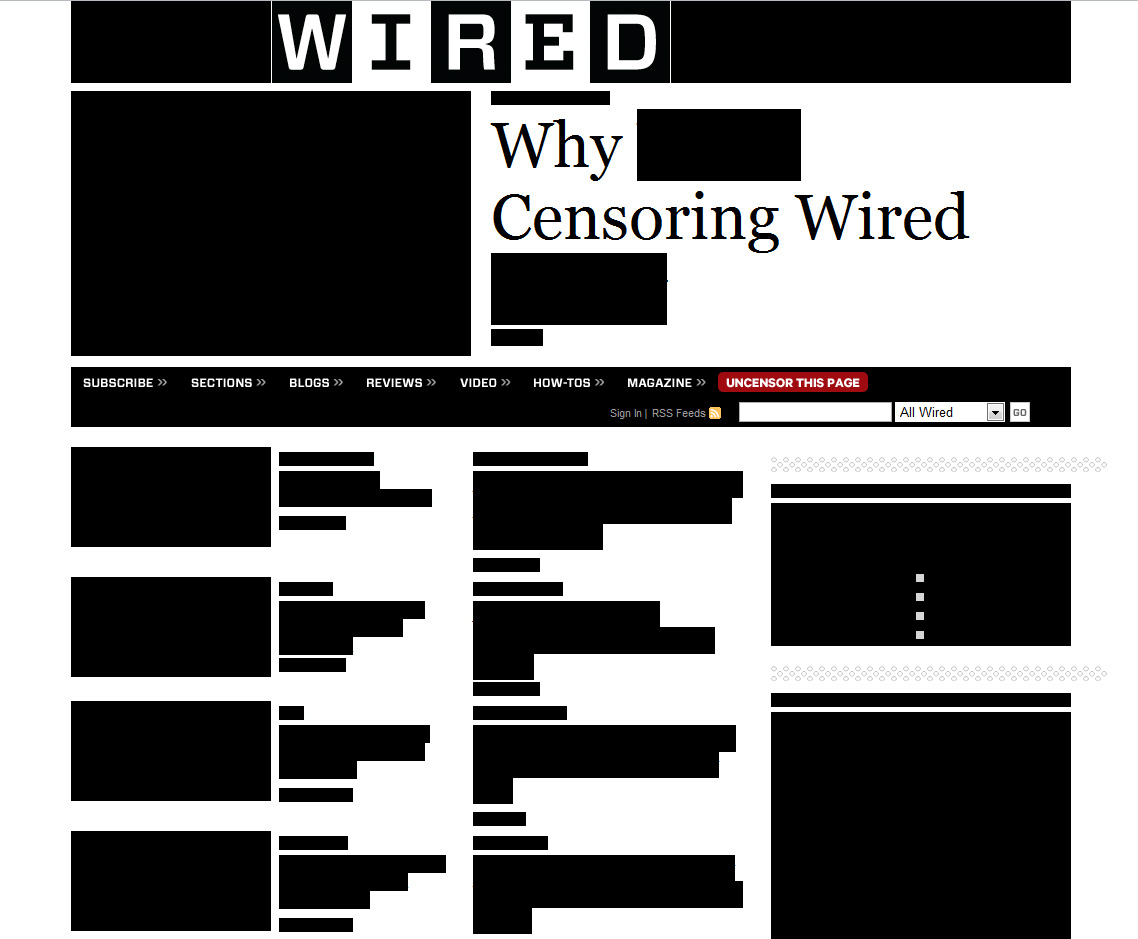
APA/Der Standard
In common parlance, Austrian citizens are no longer considered innocent until proven guilty as of April 1, when “the usual suspects” comes to mean: everybody. All telecommunications providers will then be obliged to store data having to do with their customers’ calls and maintain them for six months. This will enable authorities to find out when and to whom you sent an SMS, how often you called a particular telephone number, which user was assigned a particular IP address at which point in time, and when and from where you sent e-mails. Just consider how absurd it would be to make the Postal Service document who at what address sent how many letters to whom at what address. But, of course, digital data is simply a lot more convenient to compile. Many Austrian legal experts regard this as unconstitutional, a significant dilution or abridgment of individuals’ rights. Private communication, at least through electronic channels, becomes impossible from that point on. On the other hand, Austrian innkeepers will have reason to drink a toast to the EU as the locals’ table makes a comeback as the chatroom of the analog world. But recalling all that went down on the internet about a year ago in conjunction with the so-called Arab Spring ought to be the source of a healthy dose of skepticism on the subject of telecommunications data retention.
A very helpful overview of the entire telecommunications data retention issue is available at help.orf.at.
So, telecommunications data retention is a real hot potato, and one that gets even hotter in connection with ACTA, the international anti-piracy agreement, which has also, in the meantime, become the target of top-echelon resistance. For instance, the Polish Government has put its cooperation with ACTA on hold for the time being as long as the legislation remains in its current form, the Czech Republic has stopped the ratificationprocess as well. It didn’t take long at all for the prevailing opinion in government circles to segue from “We don’t submit to extortion!” (after internet activists had obtained sensitive information and threatened to make it public) to “The internet community’s arguments are reasonable and will be assessed.” In Austria, this would be a welcome step instead of sneaking off to Japan and stealthily signing such a momentous accord. Even high representors of the signing countries don’t fully understand the meaning of this document, the Slovanian embassador in Japan, Helena Drnovsek Zorko apologizes for signing the contract out of “civic carelessness”. Update 07.02.2012 3pm: Slovakia has stopped the ratificationprocess as well.
Why is this such a big problem, actually? ACTA expands the range of weapons with which to proceed against copyright violations; telecommunications data retention provides the ammo. The upshot is that some highly questionable—to put it mildly—interpretation of copyright laws could get you into some pretty serious legal difficulties. Distributing pirated videos is one thing (whereby the definitions of a bootleg copy and copyright definitely need a bit of a makeover to bring them in tune with the facts of life in the year 2012). In England recently, a verdict was handed down asserting that even the reenactment of famous photographs constitutes a copyright violation. Let he who is without sin cast the first stone here too.
This gruesome twosome—ACTA and telecommunications data retention—would throw the door wide open to censorship, which is why it’s no exaggeration to maintain that the implementation of these measures would take two more giant steps in the direction of an Orwellian Big Brother state.
The next few weeks are sure to be interesting.
http://help.orf.at/stories/1676648/.
